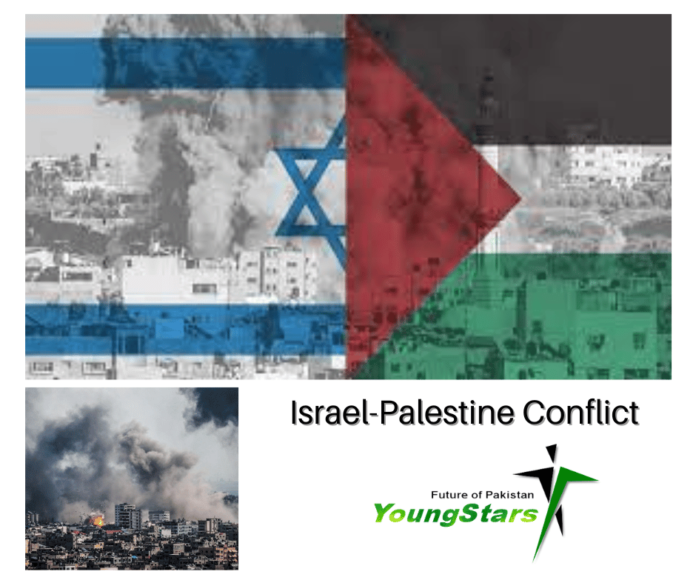The Israeli-Palestinian conflict has resulted in the displacement of millions of people and the loss of tens of thousands of lives. It may be related to the first colonisation, which occurred more than a century ago.
With Israel declaring war on the Gaza Strip after an unworn attack by the Palestine Army group Hamas. The world’s attention is again drawn to what may occur next.
In the Gaza Strip, Israel has started an offensive bombardment and killed more than 9,000 Palestinians. It looks that Israel has placed forces on the Gaza border and preparing for a ground attack. He declared “total blockage” of Gaza, stopping all supplies of food, fuel, and other basic needs. It leads to a crime. But the seeds of what will happen in the coming days and weeks are already there as well.
Throughout a significant period of time, the Israeli-Palestinian conflict has become widely seen as a complex, complicated, and stalemate conflict by Western media, academics, military experts, and politicians around the world.
Background History:
Arthur Balfour, who was also Britain’s Foreign Secretary, wrote a message to Lionel Walter Rothschild, a well-known Jewish person in Britain. This was more than 100 years back. Even the letter was only 67 words long, what was discussed about experienced a huge effect on Palestine that remains visible today. It promised the British government that it would “smooth the way for the establishment of a public home for the Jews in Palestine” and “make this possible.” The Balfour Declaration is the name of this letter.
Zionist Movement:
In reality, a European power offered the Zionist movement a land where more than 90% of the people are Palestinian Arabs. In 1923, a British commission was established. It ran until 1948. During this time, the British made it easier for a large number of Jews to come to Britain. Many of the fresh arrivals were running away from Hitler. They also faced with protests and strikes. The Palestinians were upset that the people living in their country were moving around. The British were also taking their land to give to Jewish refugees.
UN partition plan:
- There were 33% Jews living in Palestine in 1947, but they only owned 6% of the land.
- The UN passed Resolution 181, which stated that Palestine should be separated into Arab and Jewish states.
- The plan was rejected by the Palestinians because it granted the Jewish state about 55% of Palestine. That involved a lot of the rich seaside area.
- 67% of the people living in ancient Palestine were Palestinian at that time. They owned 94% of it.

Zionism: In the last few years of the 1800s, the Jewish movement started arguing for the creation of a Jewish country in Palestine. This movement became more well-known after the British government’s Balfour Declaration in 1917, which supported a “national home for the Jewish people” in Palestine.
Arab Nationalism: Tensions between the Jewish and Arab communities resulted from the Arab population in the area rejecting both the idea of a Jewish state and the inflow of Jewish immigrants.
British Mandate: During the First World War, the Group of Nations granted the United Kingdom the right to have control over Palestine. During this time period, there was a rise in Jewish immigration, which caused an increase in conflict between the Jewish community and the Arab community.
Settlements and Occupation: The continuous Israeli occupation of the West Bank and East Jerusalem, in addition to the increase in settlements in these areas, proved to be a significant contributor to the situation that resulted in the conflict. The Palestinian people consider these actions to be a violation of their rights and a barrier to the formation of a Palestinian state that is physically possible.
Religious and Cultural Differences: Moreover, the issue has serious implications for religious beliefs. The Jewish people and the Palestinian people, both of who have historical and religious connections to the area, are making fighting demands on the country.
The Failure of Peace Processes: There have been many attempts at talks about peace. They have constantly failed due to issues such as borders, refugees, security arrangements, and the status of Jerusalem.




